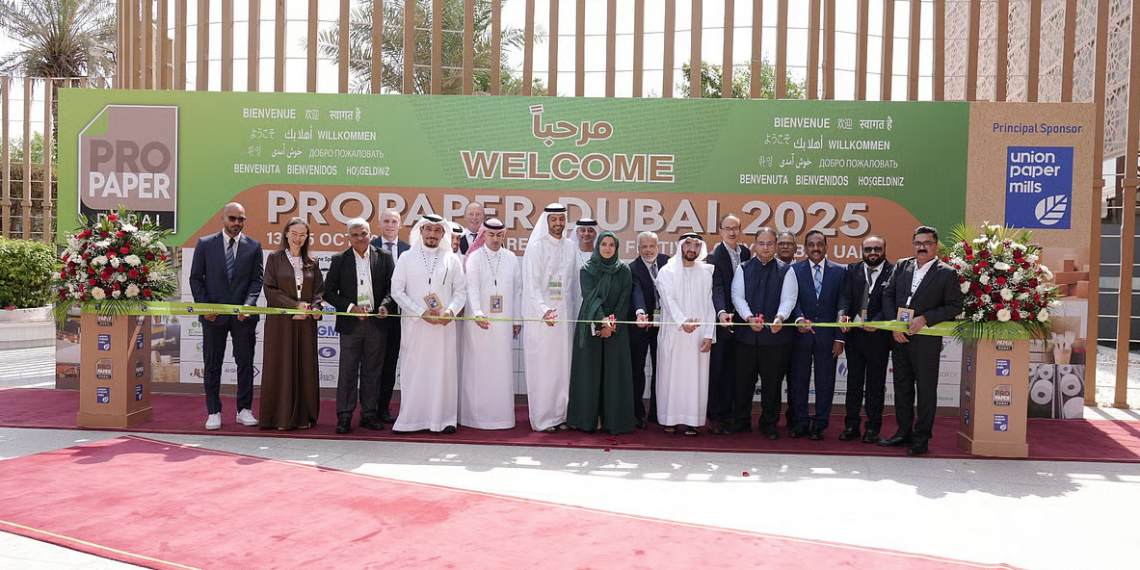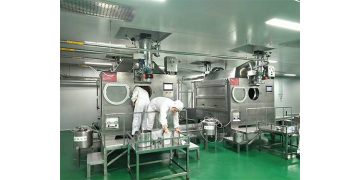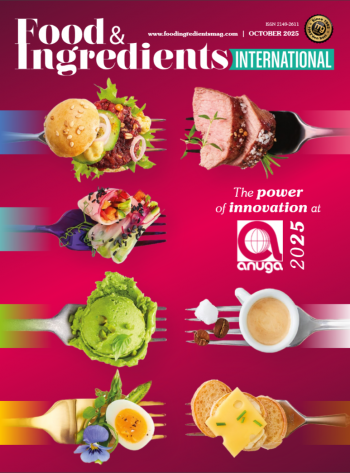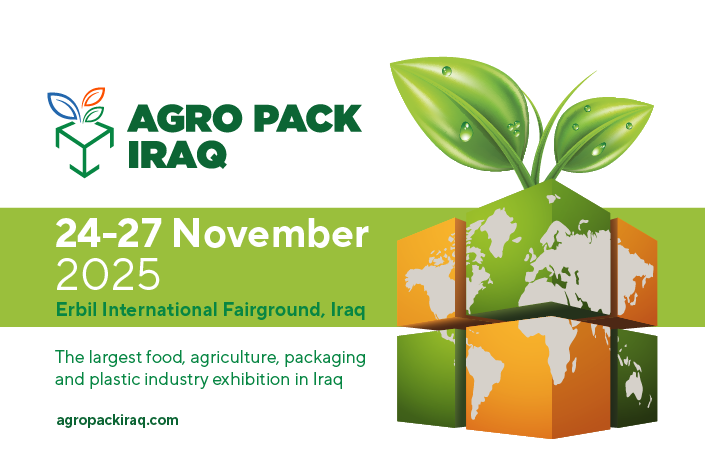Al Ghurair Foods, a division of the Al Ghurair Group — one of the UAE’s most diversified and pioneering business conglomerates — has announced the phased completion of the nation’s first-ever corn starch plant at Khalifa Economic Zones Abu Dhabi (Kezad) by the first quarter of 2026.
The landmark project marks a major step toward strengthening the UAE’s industrial self-sufficiency and boosting the circular economy.
Speaking at the inauguration of Propaper 2025 — the region’s leading B2B paper industry event in Dubai — Hamad Al Ghurair, vice-president of Al Ghurair Foods, said the project’s major civil and mechanical, electrical, and plumbing (MEP) works have been substantially completed. Installation of processing equipment is currently underway, paving the way for a phased launch in early 2026. “We are targeting the rollout of our flagship corn starch product in the first quarter of 2026, followed by the introduction of additional products in subsequent phases,” Al Ghurair said.
The Kezad-based facility, spanning 13.6 hectares, will significantly reduce the UAE’s dependence on imported starch — currently valued at about $20 million annually. Once operational, it will supply local industries with a reliable, high-quality, and cost-effective alternative, enabling greater resilience in key manufacturing sectors. “Our primary focus will be on serving domestic and GCC markets while exploring opportunities in South Asia and key African economies,” Al Ghurair noted.
Corn starch is a critical input across multiple industries including food, pharmaceuticals, textiles, chemicals, packaging, and paper. Within the paper industry, starch enhances strength, printability, and coating quality — making it indispensable for manufacturers aiming to improve both performance and sustainability. “By establishing local starch production, we are strengthening the region’s industrial supply chains and supporting the shift toward greener, circular manufacturing models,” said Al Ghurair.
Across the Middle East and Africa, the corn starch market was valued at approximately $1.3 billion in 2024, with the UAE’s share at nearly $30 million. Analysts say demand is being driven by population growth, industrial diversification, and increasing preference for biodegradable and sustainable materials. The Al Ghurair facility, once operational, will position the UAE as a regional hub for starch production and downstream innovation.
The launch coincides with a regional pivot toward sustainability and recycling, particularly within the paper sector. Propaper 2025, which runs from October 13 to 15, has placed a strong emphasis on the circular economy, renewable energy, and waste reduction strategies. “Paper mills across the GCC are investing in renewables and recycling to mitigate their climate impact,” said Jeen Joshua, managing director of Verifair, the event organiser. “The rapid growth of Material Recovery Facilities and smaller sorting units feeding regional mills reflects the serious intent behind these sustainability efforts.”
According to industry estimates, cumulative investments in paper recycling and innovation projects across the GCC have reached nearly $200 million. The UAE, Saudi Arabia, and Oman lead this drive with major investments by Star Paper Mills ($54 million), Oman’s Kreyas Paper ($40 million), and MEPCO in Saudi Arabia. Other key projects include $5.5 million by Kimfay East Africa and $2.5 million by Tetra Pak–Union Paper Mills in Egypt.
Data from ENF Recycling indicates that there are now between 80 and 100 paper recycling plants operating across the Middle East and Africa, reflecting growing industry maturity. Grand View Research estimates the region’s waste recycling services market to be worth $3.46 billion by 2033, with the recycled paper segment alone valued at $715.6 million, according to Sper Research.
The convergence of industrial innovation, sustainability, and import substitution reflected in Al Ghurair’s Kezad project underscores the UAE’s industrial vision under the “Make it in the Emirates” initiative. As the country diversifies beyond hydrocarbons, such ventures are redefining its manufacturing base — anchoring future growth in value-added, sustainable industries, analysts said.
















